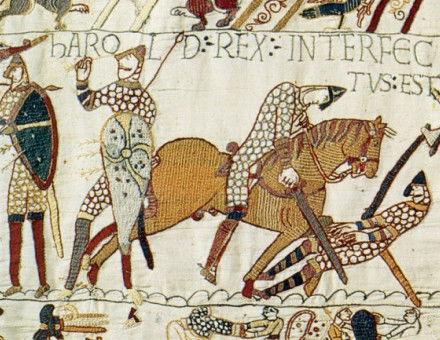England
Carry on Cricket - The Duke of Dorset's 1789 Tour
An English cricket team set out on a goodwill visit to Paris in the turbulent summer of 1789. But the proposed tour never took place. Overtaken by events, it turned back at Dover. John Goulstone and Michael Swanton compile the following account from broadsheets and from correspondence, between certain of the personalities involved.
A Watery Paradise - Rowland Vaughan and Hereford's 'Golden Vale'
'I speak of the Golden-Vale, the Lombardy of Herefordshire, the Garden of the Old Gallants, and Paradice of the backside of the Principallitie', wrote Rowland Vaughan. Mary Delorme introduces the exponent of an early irrigation system.
Charles, Cromwell and Channon
The campaign to preserve the Battle of Naseby site in Northamptonshire, a pivotal moment in the English Civil War.
The Lyceum Theatre, London
Jeffrey Richards looks at a stage where Victorian theatre attained its apogee
1066 and all that Revised
Cultural cataclysm or merely a modification of an Anglo-Saxon status quo? Antonia Gransden looks at views, past and present, of the Norman conquest.
William and Mary and the World of Maritime Asia
Charles Boxer examines the impact of 1688 on Anglo-Dutch relationship with nations east of Suez.
James II's Two Rebellions
Why did Monmouth fail and William of Orange succeed? Robin Clifton investigates the tale of two rebellions.
St Luke's Church, Chelsea
J Mordaunt Crook examines the history of a Gothic church in West London.
The Lurch Into War
In May of 1588, Spain's great Armada set sail, bent on the invasion and conquest of Elizabethan England. Simon Adams re-examines the strategic considerations that underpinned the actions of both England and Spain before and after the Armada.



